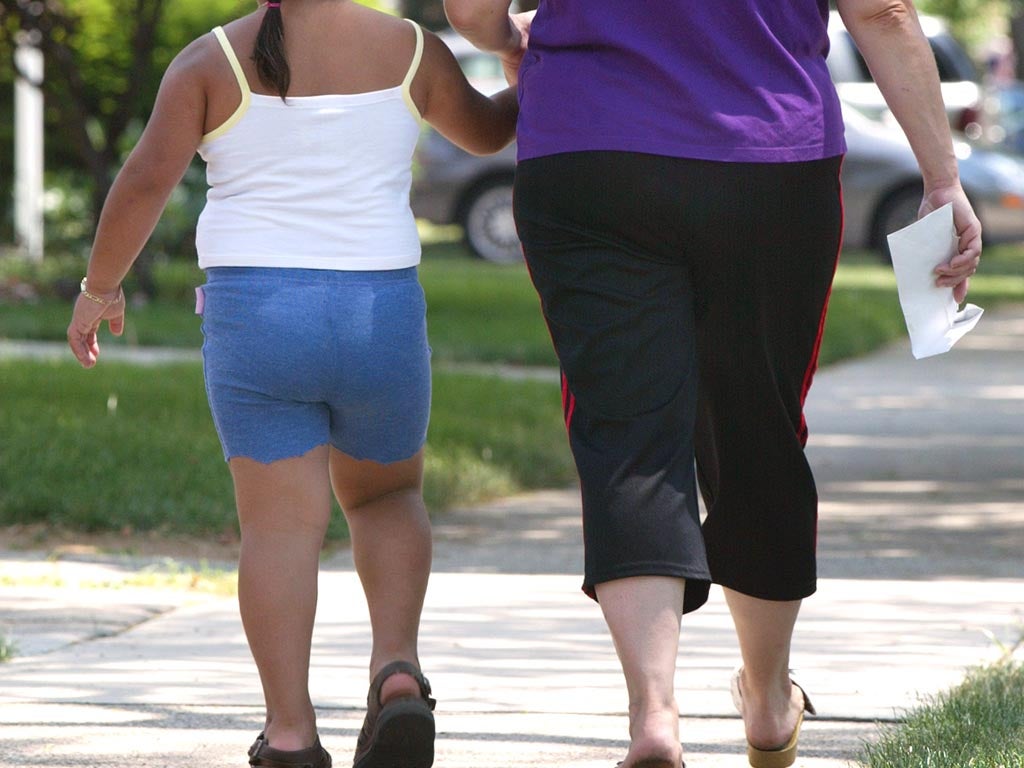Raising an obese child isn't child abuse - and blaming the parents won't solve the problem
Are we genuinely interested in tackling the complicated issue of increasing obesity in our young people, or do we just want to have someone to blame?


Your support helps us to tell the story
From reproductive rights to climate change to Big Tech, The Independent is on the ground when the story is developing. Whether it's investigating the financials of Elon Musk's pro-Trump PAC or producing our latest documentary, 'The A Word', which shines a light on the American women fighting for reproductive rights, we know how important it is to parse out the facts from the messaging.
At such a critical moment in US history, we need reporters on the ground. Your donation allows us to keep sending journalists to speak to both sides of the story.
The Independent is trusted by Americans across the entire political spectrum. And unlike many other quality news outlets, we choose not to lock Americans out of our reporting and analysis with paywalls. We believe quality journalism should be available to everyone, paid for by those who can afford it.
Your support makes all the difference.Last week during a debate on ITV1’s This Morning I was forced to utter some words I never thought I’d have to say. The sentence was:
“Can we work on the basis that most parents love their children and want the best for them, please?”
Of course I was subsequently lambasted on Twitter with examples high profile stories of child abuse and neglect from various media outlets. Call me naive if you absolutely must, but surely the reason these examples of child cruelty are given so much press attention is because they are so unusual and consequently shocking?
I don’t know what’s happened to the world of parenting but as a non-parent I feel I’m sufficiently objective to make a few observations. I’ve never held with the ‘you can’t possibly understand this until you’re a mother’ argument (which is hurled in my direction with irritating frequency). Being a mother, as far as I can tell, so blinds you with unconditional love for one or more very specific small people that in fact you lose the ability to see anything clearly. Which is of course how it should be. But it doesn’t mean the rest of us aren’t entitled to an opinion.
It seems we’ve created a culture where we’re unable to grasp that parents are human, that occasionally they’ll make mistakes and that sometimes they need a little outside help and understanding. After all, rabbits can shag, anyone who has started their period can get pregnant and it’s not like you need to take a qualifying exam. Yet somehow, anything which might negatively impact your child has started to become imbued with an intention that wasn’t there – we’ve started to think of parents as evil - and never is this more apparent than in our attitudes towards obesity.
Fellow journalist Sally Windsor, who was my sparring partner on that fateful day-I-had-to-say-the-thing-I-never-thought-I’d-have-to-say articulated the terrifyingly popular view that parents of obese children are guilty of abuse. She further suggested that these parents be punished by way of ASBO or electronic tag.
Which led me to question – are we genuinely interested in tackling the complicated issue of increasing obesity in our young people, or do we just want to have someone to blame? If it’s the former, if we really want to be proactive rather than sitting on our rapidly-expanding backsides self-righteously huffing about our perception of other people’s parenting, then we need to transform our entire attitude towards obesity.
At present, if a parent goes to their GP and says ‘my child is overweight and I need some help to make them healthier’ they are given a sheet with a suggested daily diet appropriate for a child of that age. This is the equivalent of a drug addict going to their GP and being given a big piece of paper with “STOP TAKING DRUGS” written on it.
If it were as simple as knowing what we should be eating and then putting that our faces, everyone would be doing it. As it is, parents are left dealing with children who refuse to eat entire food groups, throw tantrums at mealtimes or, more simply and a hellava lot more effectively, simply look at their parent with large, sad eyes and say “Mum, I’m hungry”.
Even I can see it would take a will of iron to refuse your child food. You might know logically that it won’t do them any good long term, but parents are programmed to respond to their child’s immediate needs and at that precise moment the ‘need’ (whether physical or emotional) is food.
That is before we even begin to acknowledge the age-old ‘food = love’ dynamic that is so deep rooted within our society and is the reason we eat cakes on our birthday.
It would be far better, would it not, to train parents in how to deal with their children’s behaviour and the underlying reasons they are demanding the food. Because obesity is a psychological issue. Just like anorexia, just like drug addiction – the only difference being that the effects of food addiction are much less palatable to the eye in a world where thinness is next to godliness. We have been brainwashed into showing no compassion for our fellow person if we deem them to have an unacceptably high BMI.
Most of all, though, we need to have the humility to understand that telling someone they’re a bad person isn’t the best way to get results out of them. If I see one more smug TV parenting pundit talking about how delighted their kids are to read literature and eat broccoli and ‘it’s simply a question of discipline’ - I’m never having sex again out of fear I might become them.
Accusing someone of being a bad parent isn’t going to lead to lasting changes in their behaviour. It’s going to get their back-up and lead to further excuses, hostility and ultimately, spiralling-obesity.
Childhood obesity has its roots in a multitude of factors from the relative cheapness of fast-food to aggressive child-targeted advertising campaigns to the fact that most parents have been forced by the recent direness of our economy to work long and unsociable hours and by the time they get home they are, frankly, too knackered to cook or play tennis with their kids. It’s not ideal, but it’s reality.
Let’s work with the world we have, rather than the world we wished we had and acknowledge that we all have a responsibility to examine our attitudes towards the overweight.
Join our commenting forum
Join thought-provoking conversations, follow other Independent readers and see their replies
Comments